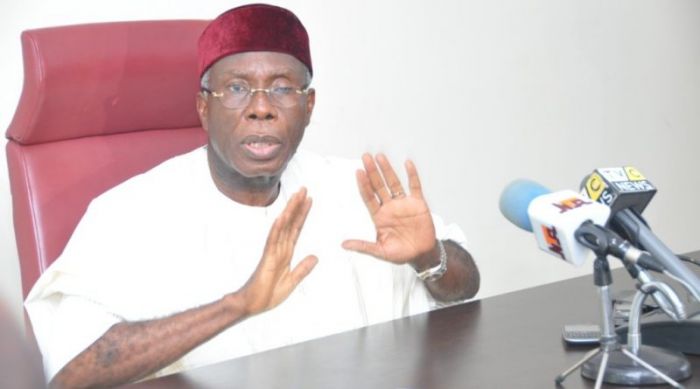- We’ve Saved $21bn on Food Imports, Says FG
The Federal Government on Tuesday announced that Nigeria saved $21bn on food imports in the last three and half years.
It also stated that the country increased the export of its agricultural produce by 500 per cent within the period under review.
The Minister of Agriculture and Rural Development, Chief Audu Ogbeh, disclosed this in his office in Abuja while playing host to officials of the Bank of Agriculture, as well as those from the Bureau of Public Enterprises.
The government officials and other participants at the meeting also discussed how to recapitalise the BOA in order make it efficient and effective in the agricultural sector.
Ogbeh said, “Two banks in Nigeria announced that we have actually saved $21bn on food imports in three and half years, and the National Bureau of Statistics has affirmed that agriculture exportation has gone up to 500 per cent since we came in, and we are just beginning.”
The minister said the country needed value addition and cottage industries, as these would help decongest most cities in Nigeria.
“This is important so that young people can be comfortable in their rural environments, make money and live a good life. We want to minimise the tendency of our young people crossing the desert to Europe in search of happiness which does not exist there,” Ogbeh added.
On the move to recapitalise the BOA, the minister expressed optimism that the bank after its recapitalisation would be large enough and would comfortably provide loans to farmers.
Ogbeh said, “We have a new vision for agriculture here; we want to create the farmers’ bank. This is their chance to become co-members and owners of the bank. It has a chance of becoming a very large bank in the future, just like the one in China.
“Failures in agriculture have been caused by a number of factors, sometimes the excessive interest rate and sometimes agronomic practices which are not in place or properly aligned, then, of course, there is the issue of management.”
He added, “The Ministry of Agriculture is also going to make sure that it gives support to the bank so that failures are minimised. If this structure we want to put in place now starts working successfully, and we raise a capital base of anything between N200bn to N250bn and farmers can access credit at the lower end of the single digit (lower than six or five per cent), we hope to achieve a lot of things.”

 Forex3 weeks ago
Forex3 weeks ago


 Naira2 weeks ago
Naira2 weeks ago
 Billionaire Watch2 weeks ago
Billionaire Watch2 weeks ago




 Naira2 weeks ago
Naira2 weeks ago




 Naira2 weeks ago
Naira2 weeks ago




 Naira1 week ago
Naira1 week ago




 Naira3 weeks ago
Naira3 weeks ago




 Naira4 weeks ago
Naira4 weeks ago


















